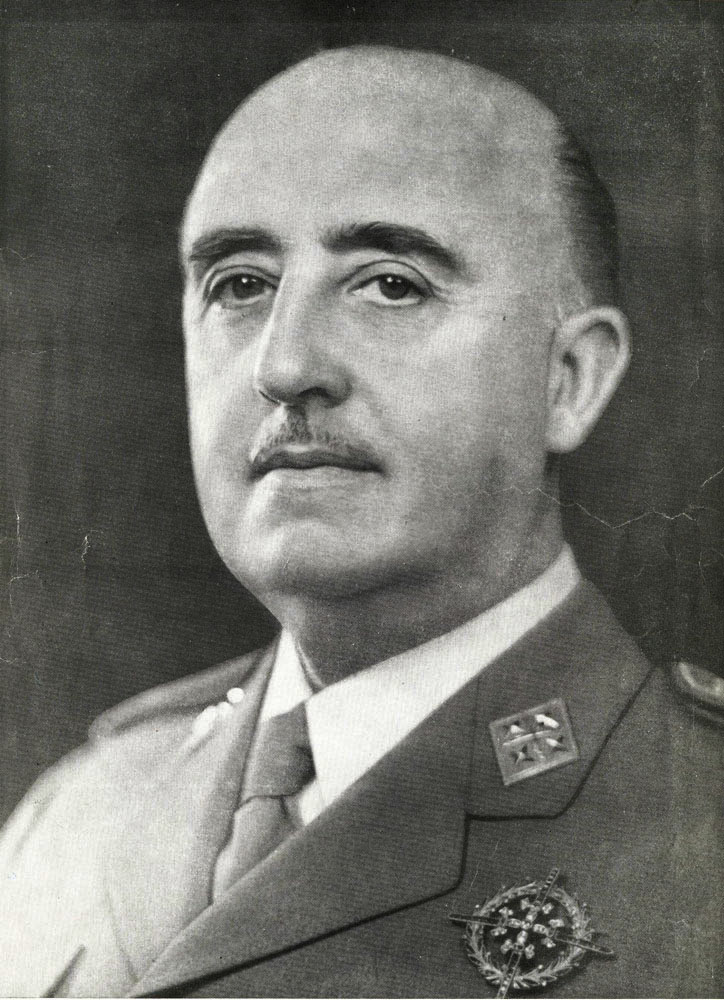Francisco Franco, commonly known as Fransisko Franko in Spanish, was a prominent figure in Spanish history. Born on December 4, 1892, in Ferrol, Spain, Franco would go on to become one of the most influential and controversial leaders of the 20th century. Serving as the head of state and dictator of Spain from 1939 until his death in 1975, Franco’s regime had a lasting impact on the country, leaving a complex and divisive legacy that continues to be debated to this day.
Early Life and Rise to Power
Franco’s early life was marked by his military aspirations. He entered the Spanish Military Academy at a young age and displayed exceptional leadership skills. His military career took off during the Rif War (1920-1926) in Morocco, where he gained recognition for his tactical prowess. By the time the Spanish Civil War broke out in 1936, Franco had risen to the rank of general.
The Spanish Civil War was a brutal conflict that lasted from 1936 to 1939. It pitted the Nationalist forces, led by Franco, against the Republican forces, comprising a coalition of left-wing groups. With the support of fascist Italy and Nazi Germany, Franco’s Nationalists emerged victorious. The war resulted in widespread bloodshed and political repression, with estimates of casualties ranging from 500,000 to a million people.
Following the Nationalist victory, Franco established a dictatorial regime in Spain. He abolished democratic institutions, suppressed political dissent, and centralized power under his control. The regime was characterized by strict censorship, human rights abuses, and a pervasive atmosphere of fear. Franco’s ideology combined elements of fascism and nationalism, with an emphasis on traditional Spanish values and Catholicism.
Franco’s economic policies focused on autarky, or self-sufficiency. He implemented protectionist measures to promote domestic industries and reduce dependence on foreign imports. While these policies initially helped to rebuild the Spanish economy, they stifled innovation and limited economic growth in the long run. Spain’s economy remained isolated from international markets until the 1950s, when the regime began to adopt more liberal economic policies.
Under Franco’s rule, Spain experienced a significant degree of social and cultural repression. Non-Catholic religions and regional languages were suppressed, and censorship was pervasive. Intellectuals, artists, and dissidents faced persecution and exile. The regime sought to impose a homogenized and conservative vision of Spanish identity, suppressing regional identities and diversity.
Franco’s Spain was isolated diplomatically due to its fascist associations. The regime was not recognized by the United Nations until 1955, and Spain remained outside the international community for much of Franco’s rule. However, as the Cold War intensified, the United States saw value in having a pro-Western ally in the Iberian Peninsula and gradually warmed to Franco’s regime.
Franco’s death in 1975 marked the end of his dictatorship. Spain transitioned to democracy under King Juan Carlos I, who initiated a process of political and social reforms. The transition, known as the “Spanish Transition,” led to the drafting of a new constitution in 1978 and the establishment of a democratic parliamentary monarchy.
Franco’s legacy is deeply divided. Supporters credit him with preserving Spanish unity and preventing the country from descending into chaos during a turbulent period. They argue that his regime laid the groundwork for economic development and stability. However, critics point to the repression, human rights abuses, and cultural homogenization that occurred under his rule, arguing that his regime caused significant harm to Spanish society



















Add Comment